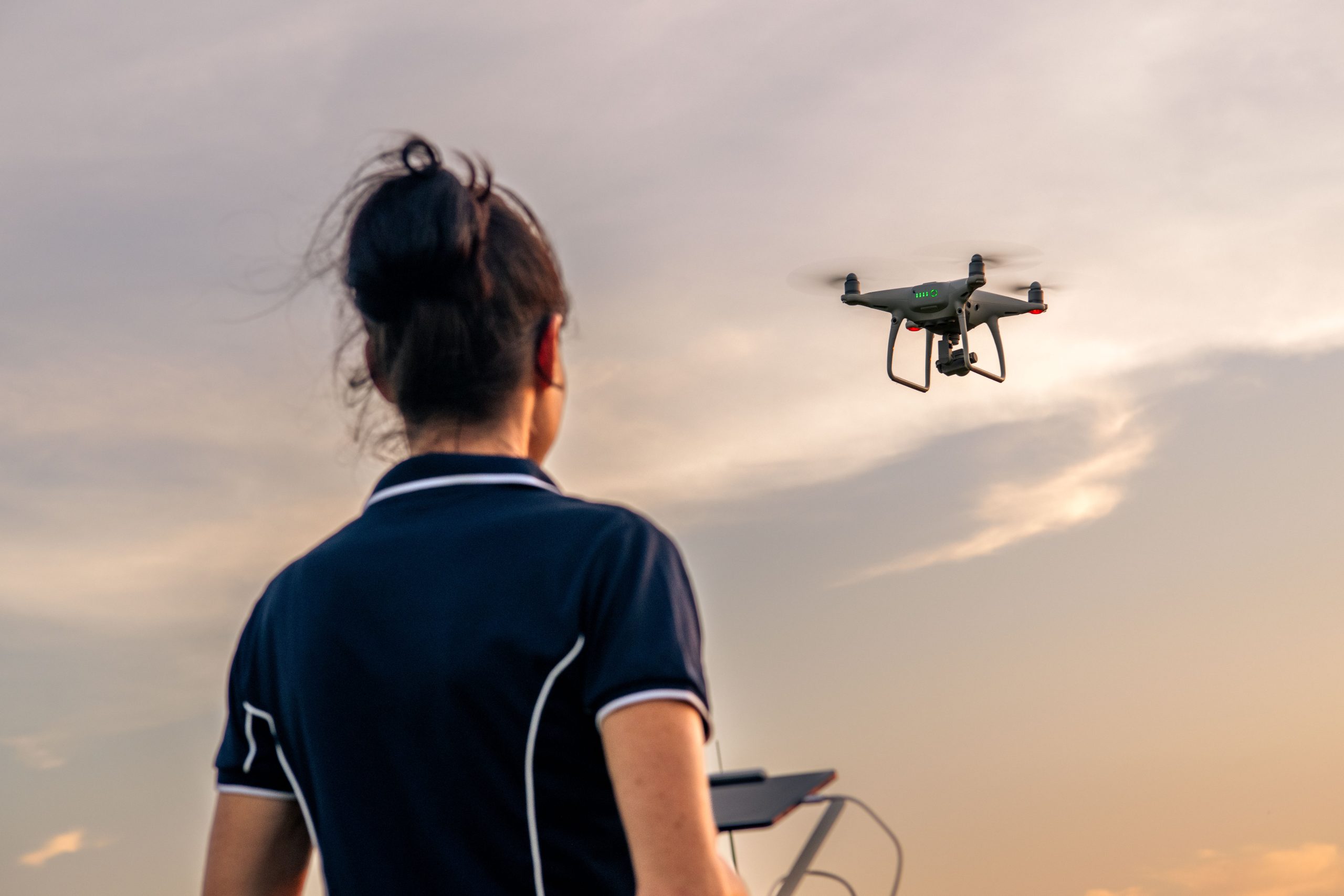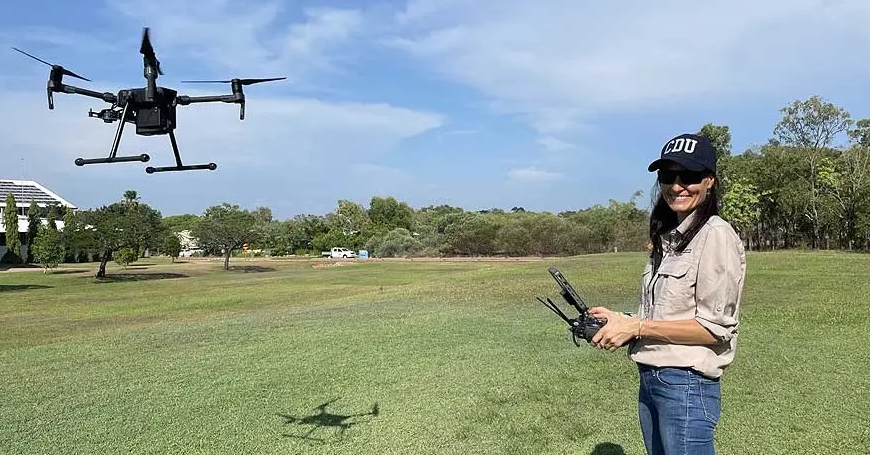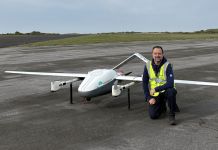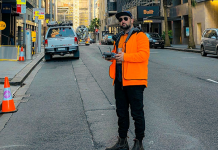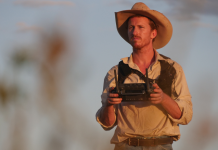Rebecca Ludgate’s aviation journey was inspired by her father, a Qantas pilot. She decided to learn to fly too and, after obtaining her commercial helicopter pilot’s licence, began flying in some of Australia’s most challenging regions, including the Kimberley, Far North Queensland and the Torres Strait.
Her introduction into remotely piloted aircraft systems (RPAS) began by working with the Boeing subsidiary Insitu Pacific, where she operated the uncrewed aircraft ScanEagle. This experience paved the way for her current role as chief remote pilot at the North Australia Centre for Autonomous Systems (NACAS) at Charles Darwin University.
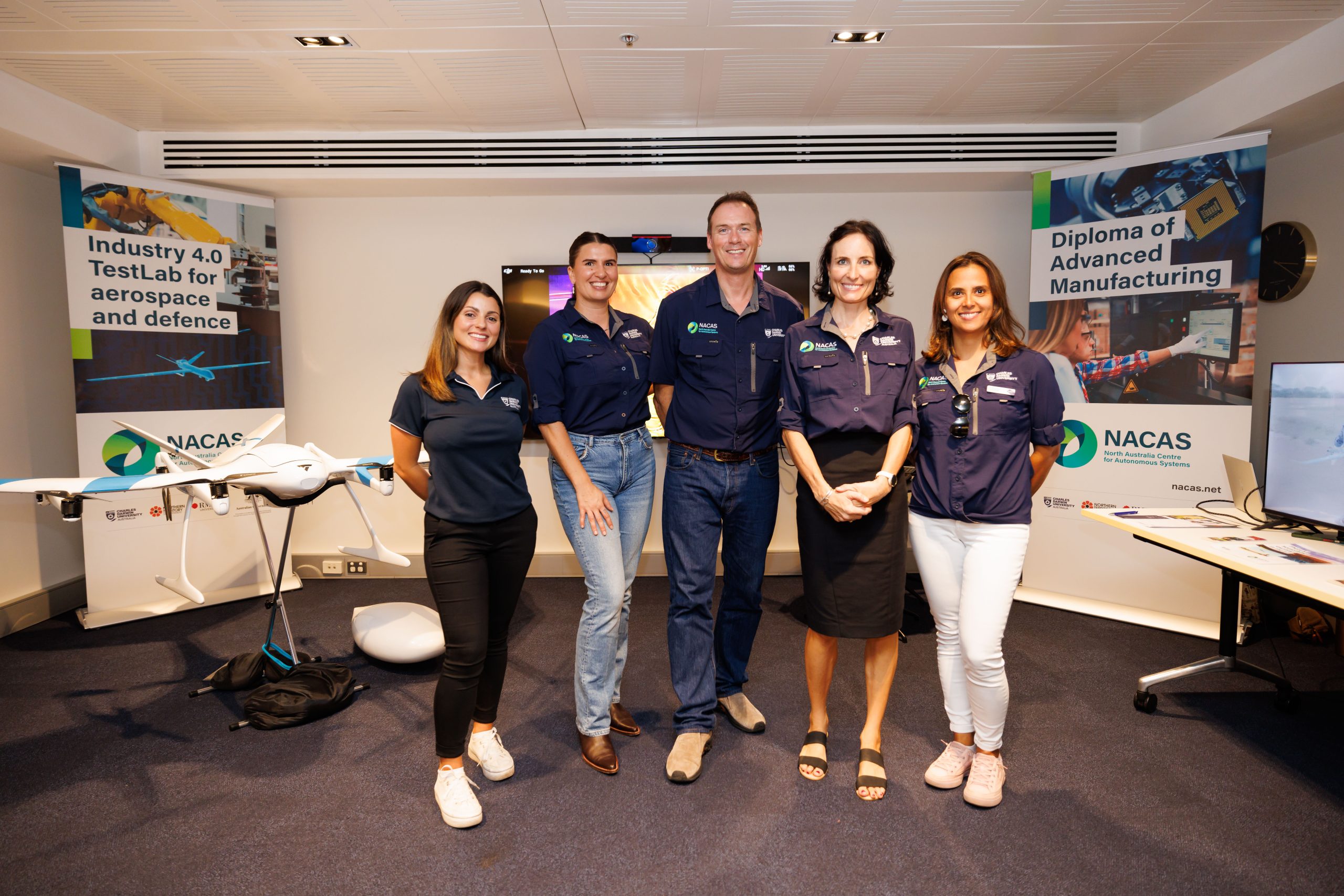
NACAS aims to bridge the gap between industry needs and the practical integration of RPAS technologies. Rebecca and her team collaborate with aviation RPAS companies, research institutions and universities to address the unique challenges of deploying RPAS in remote areas of northern Australia. Through these partnerships, NACAS helps develop solutions that enhance the effectiveness and safety of RPAS operations.
Safety is the top priority for Rebecca’s team. Before every operation, they conduct site surveys, perform detailed risk assessments and hold pre-flight briefings to ensure everything is in order to proceed with the flight.
‘Collaborating with industries like agriculture, conservation and land management, and healthcare to introduce drone technology is highly rewarding,’ Rebecca says. ‘This work has allowed our team to test and select drones that perform safely in challenging conditions and problem-solve communication limitations when operating in remote areas.’
In 2023, her team was invited to fly a drone for the project Twenty to the Mile, assisting historian Derek Pugh.
A lot of the team’s drone operations involves seeking permission and permits to fly in national parks and reserves, as well as landowner approval. Fortunately, filming for this documentary was done at the university’s Katherine rural campus, meaning landowner approval was not an issue, although they do make sure not to interfere with the staff of the college as they muster the cattle.
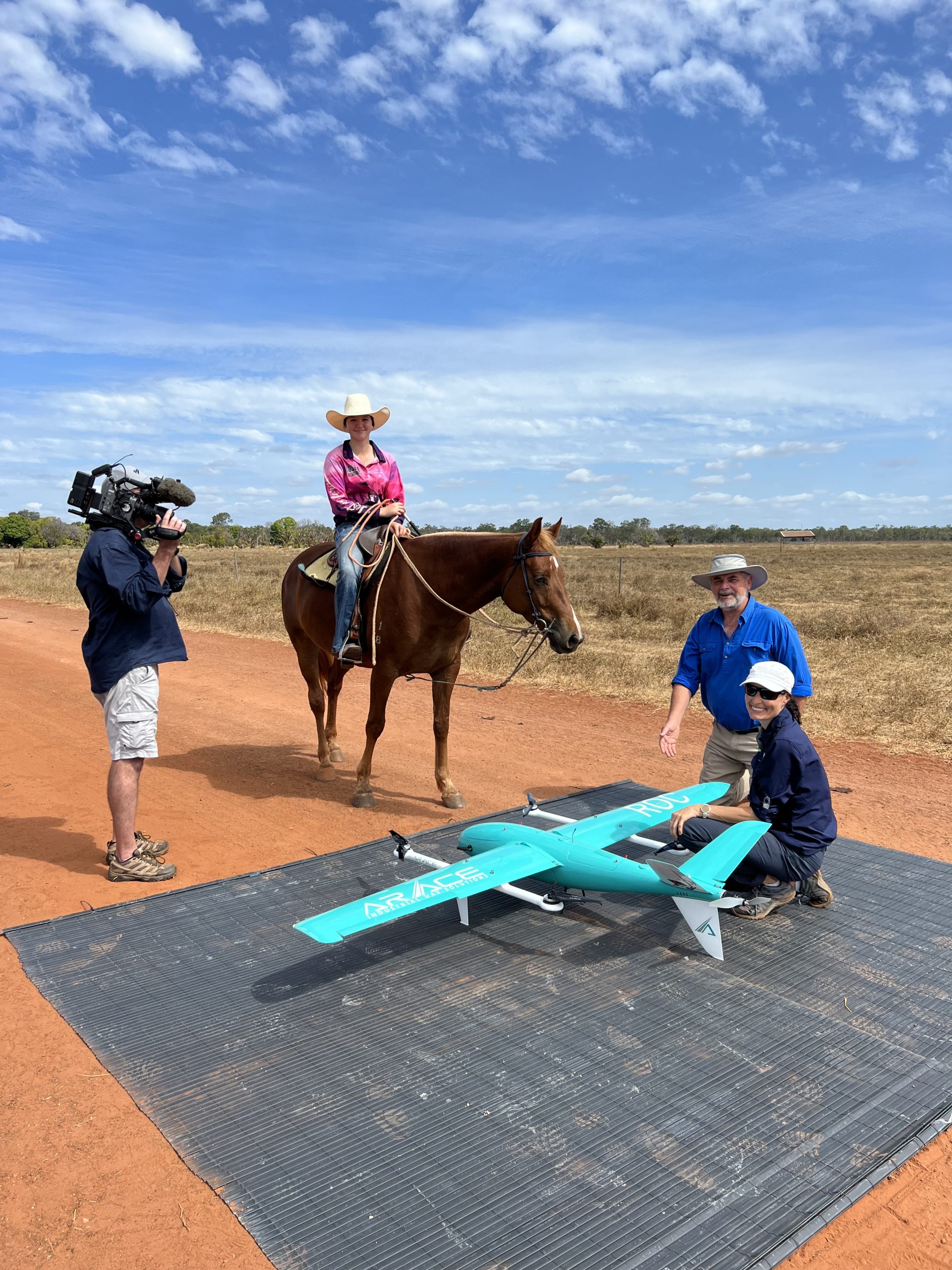
To do her job, Rebecca holds a remote pilot licence for fixed-wing, power lift and multi-rotor (sub-25 kg) drones, as well as an IREX instrument rating. Her team utilises a suite of DJI drones for training, on top of more specialised drones from Arace and SenseFly as remote sensing platforms and the RigiTech Eiger for delivering medical supplies to remote communities.
‘The rapid technological advancements in the industry are interesting. It’s a growing industry and it’s great seeing what comes out next in terms of capabilities,’ Rebecca says.
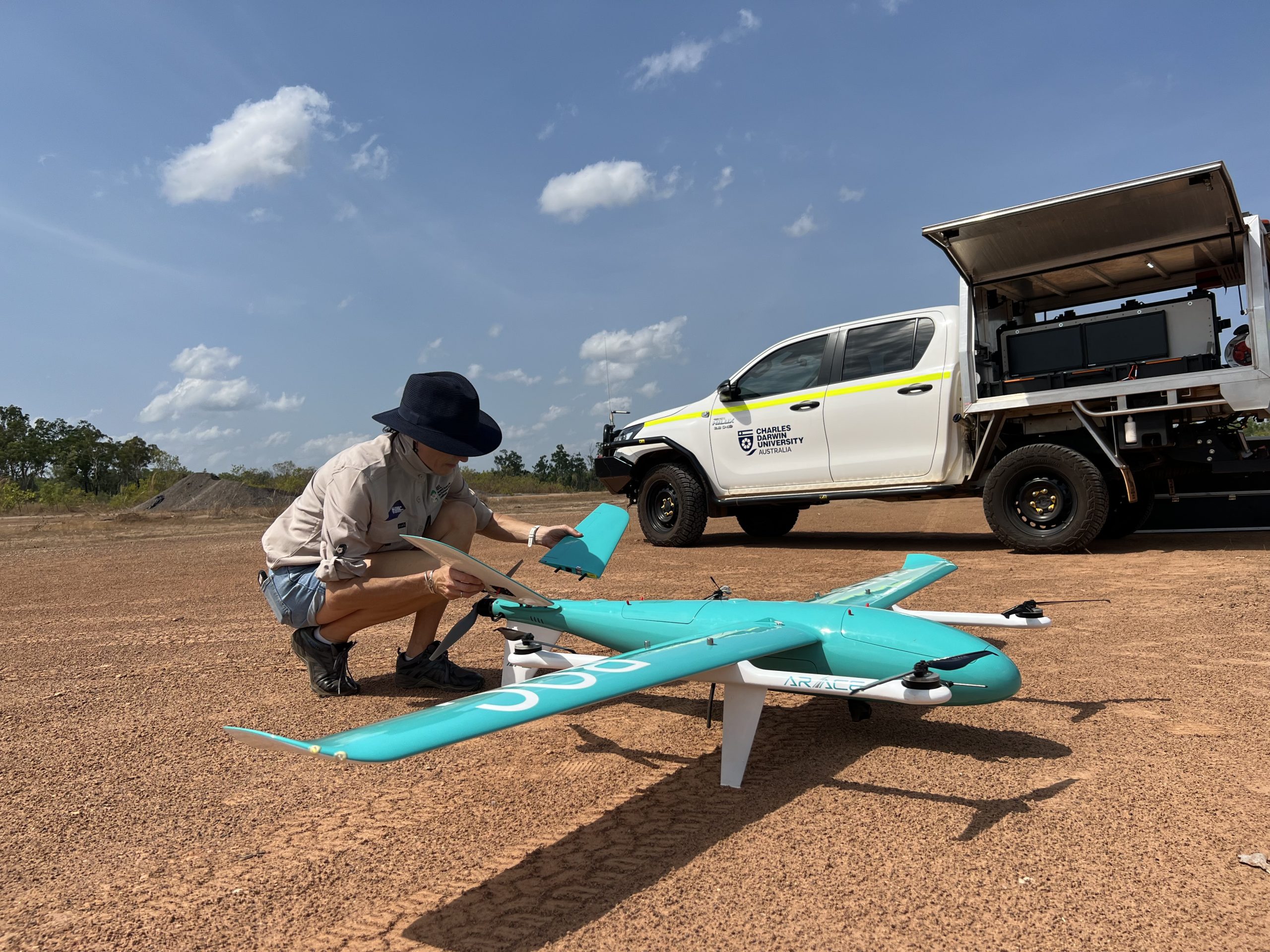
In addition to her role as chief remote pilot, Rebecca also works as a vocational education and training (VET) lecturer, instructing on the Certificate III Remote Pilot in Aviation. ‘The Certificate III courses are an excellent platform for me to share my aviation knowledge,’ she says. ‘I emphasise the importance of adhering to drone safety rules to promote safe flying practices from the start. These programs have advanced students into careers in mining, conservation and land management and real estate.’
Rebecca offers this advice to those interested in the drone industry: ‘Join a VET course or seek out work experience opportunities with industry professionals. It’s all about making connections and showing interest.’
Looking ahead, Rebecca anticipates an increase in the number of women entering both the drone and the broader aviation industry. ‘In crewed aviation, there are still relatively few women. However, in the drone sector, there seems to be a growing presence. More women are enrolling in Certificate III courses and flying drones professionally in both industry and research sectors. It’s encouraging to see more women joining the industry, I think it’s great.’
